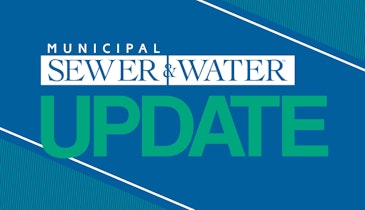As part of its ongoing focus to help water utilities reduce energy consumption and improve sustainability, the Water Research Foundation (WaterRF) has published its latest report, “Toolbox for Water Utility Energy and Greenhouse Gas Emission Management” (Project #4224).
This project evaluates, compares, and contrasts process models, impact assessment methods, and performance indicators used by water utilities in North America, Europe, South Africa, and Australia to evaluate their energy use and greenhouse gas (GHG) emissions. The project also identifies how these tools can be used to support management decisions at water utilities.
The report discusses implications of different methodologies, investigates opportunities to establish a harmonized assessment method, and provides related recommendations. Research partners include the New York State Energy Research and Development Authority and the Global Water Research Coalition.
In explaining the value of this latest report, Robert Renner, WaterRF’s executive director, says, “Energy management and GHG accounting tools are proliferating. However, because they are typically developed in response to differing location and sector-specific needs, no universally accepted methodologies that support the unique needs of the water sector currently exist. It was critical to assess the applicability of existing tools and develop an energy and GHG toolbox that the water industry can utilize effectively on a global scale.”
Among the recommendations is to develop methodologies and tools that represent the full range of GHG emissions associated with the urban water cycle or a whole-systems level analysis of emissions. At present most methodologies address GHG emissions from a selected subset of the urban water cycle, such as sourcing, storing, treating and distributing drinking water or treating wastewater, but do not address the water cycle holistically.
“As WaterRF continues to expand its research agenda to support Total Water Management, it is critical that we adopt a more holistic view, and that includes energy consumption and GHG emissions,” Renner explains. “This dovetails with the growing industry trend to optimize water usage with the absolute least and cleanest energy possible.”
Project 4224 is the latest effort by WaterRF to help the water utility industry address challenges associated with the water-energy nexus. The Foundation has several ongoing projects in its Energy Focus Area to provide effective strategies to reduce water utility energy consumption and cost, to provide approaches for energy generation by water utilities, and to develop strategies for multi-sector integrated water-energy planning.
Another resource available to the industry is the WaterRF Knowledge Portal focusing on Energy Management, which provides a wealth of related information for water utilities.
About the Water Research Foundation
Founded in 1966, the Water Research Foundation is an international, 501(c)3 nonprofit organization that sponsors research to enable water utilities, public health agencies and other professionals to provide safe and affordable water to the public. With more than 1,000 subscribers who provide water to 80 percent of the U.S. population, WaterRF has funded and managed more than 1,000 projects. For more information, go to www.WaterRF.org.





